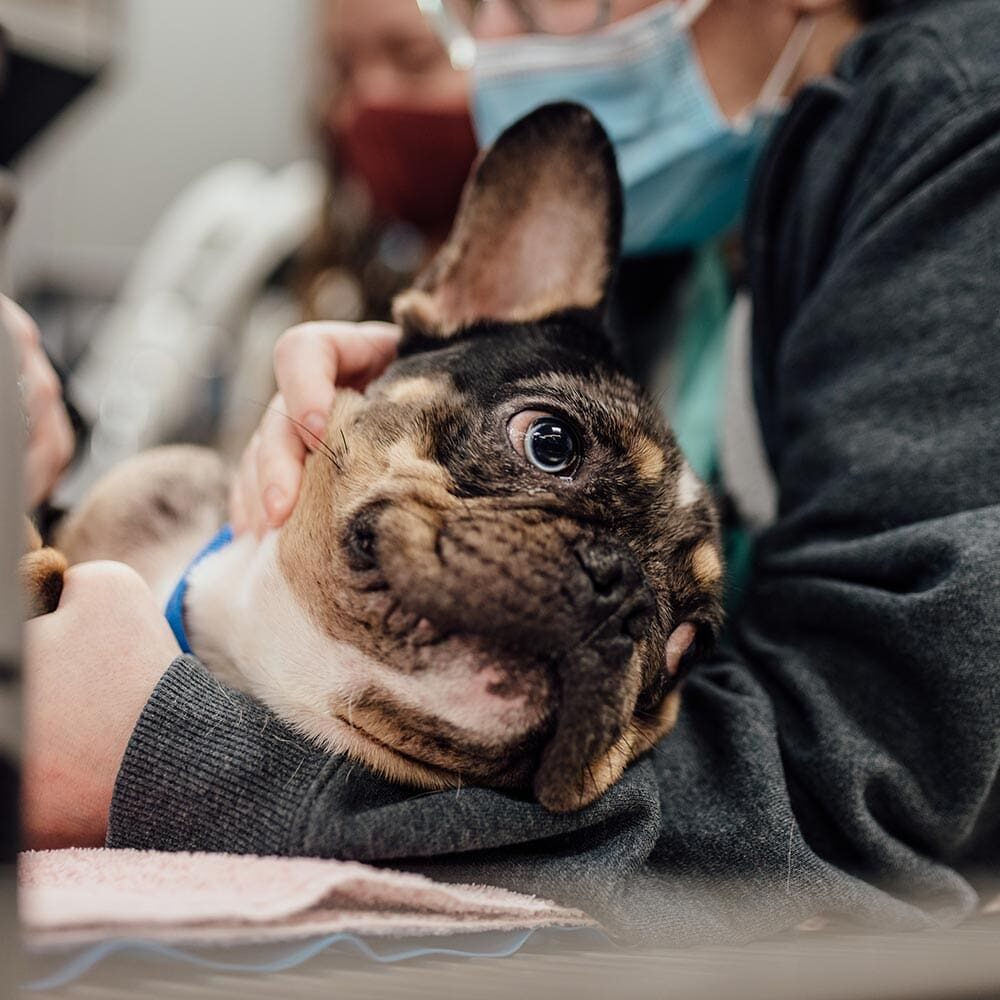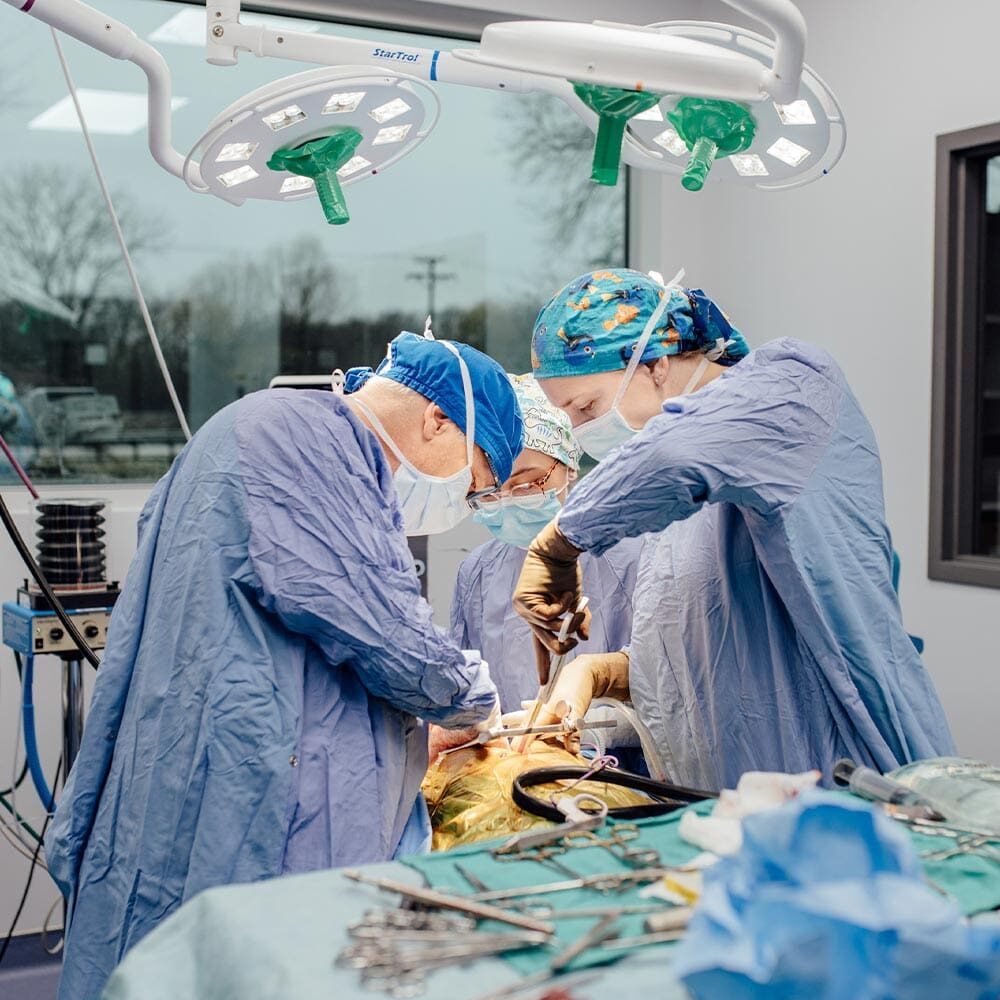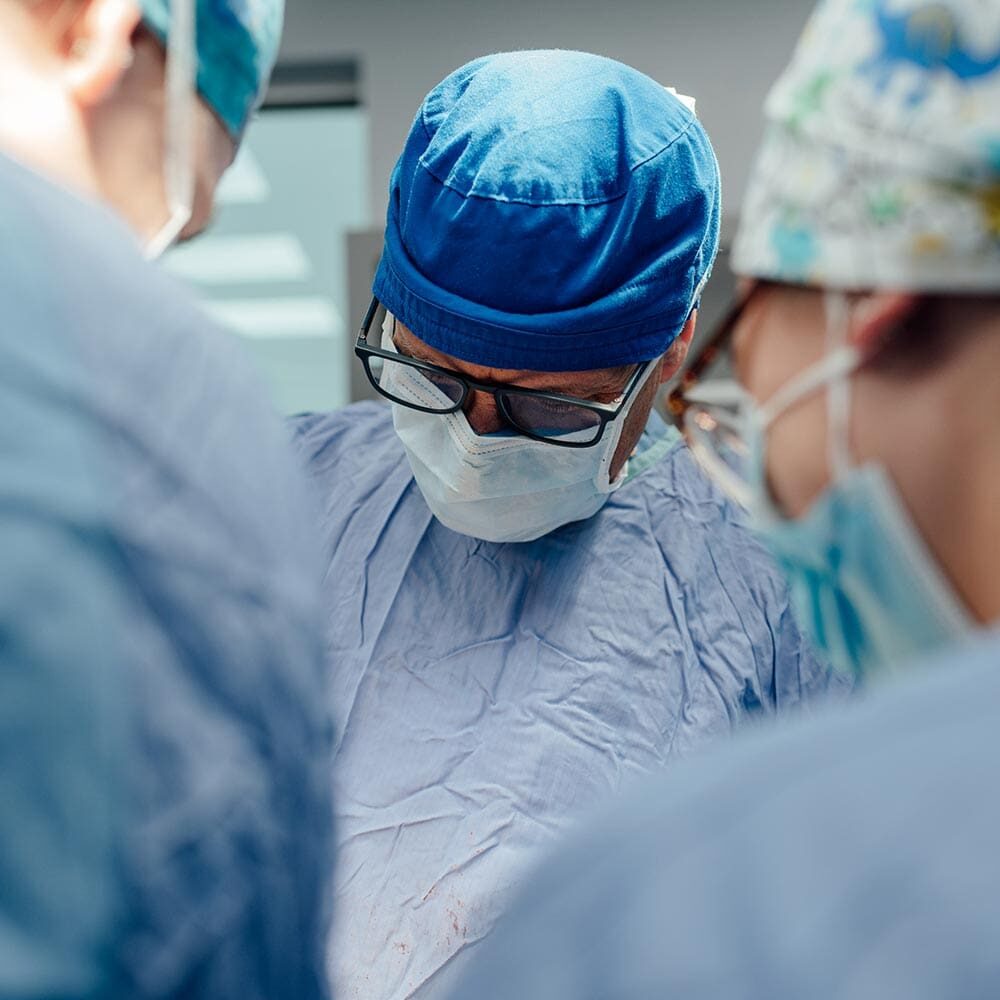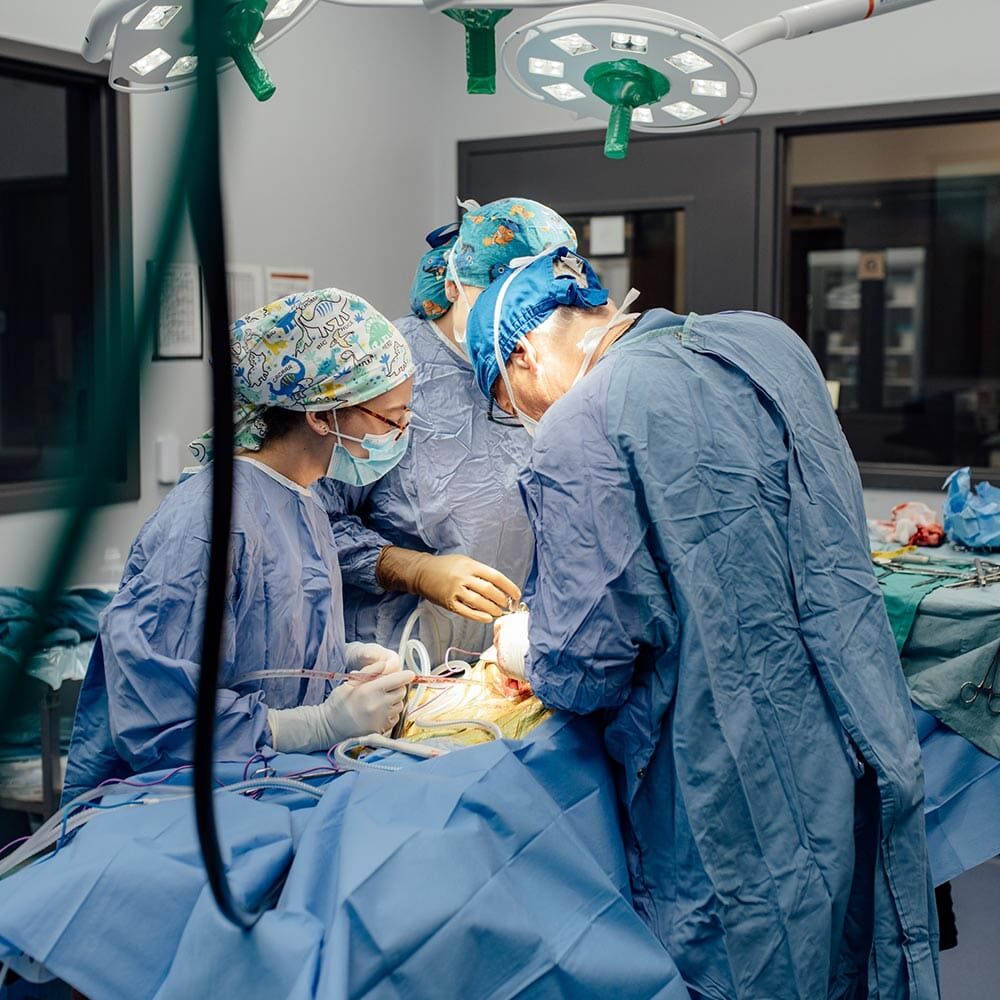Veterinarians turn to board-certified veterinary surgeons to assist with more complicated surgical cases than they would typically see in day-to-day practice. Veterinary Specialty Center is home to the most experienced surgical team in the Chicagoland area, with skilled surgeons able to provide a variety of orthopedic, soft tissue, neurologic, laparoscopic, oncologic, and emergency procedures along with interventional radiology techniques.


What to Expect from Your Surgical Visit
Your pet’s surgical appointment will start with a consultation, which includes an examination, a review of all the information your primary care veterinarian sent, and a discussion about your pet’s pertinent history. Your surgeon will discuss your pet’s condition, all treatment options, and prognosis. Before any treatment, we provide a patient care plan with an estimate of cost based on this discussion. We understand that each pet is unique and will work with you to find the best treatment option for your pet and family situation. You will also have an opportunity to ask questions about the benefits and risks of your pet’s procedure, follow-up, and expected outcome.
A Team Approach
Our surgeons work closely with anesthesiologists, radiologists, and other specialists to ensure your pet receives comprehensive care. We also have experienced anesthesiologists to tailor safe anesthesia protocols using advanced monitoring equipment and plan multi-modal pain management. If needed, critical care specialists will oversee your pet's recovery in our ICU.
Pre-Surgical Diagnostics
Your surgeon may recommend additional diagnostics to better understand your pet’s illness or lameness and ensure there are no other co-morbidities (like heart problems, or the spread of cancer). The surgeon will explain any test that is recommended, and should they discover additional problems, you will be consulted as to what additional decisions or tests should be performed on your pet’s behalf. We understand these can be stressful times and will do our best to make sure the communication is clear. Designating one primary family member to receive communications will help us ensure the best care for your pet. One of the benefits of our facility is that most diagnostics can be performed on the same day as your consultation. If appropriate, most pets can have same-day surgery, minimizing the stress of being away from the family.
Some of the diagnostic tools we have at our disposal include:
-
64-Slice Computer Assisted Tomography (CAT scan)
-
3 Tesla Magnetic Resonance Imaging (MRI)
-
In-house “full” laboratory with blood-gas analysis and advanced coagulation panels (TEG)
-
In-house clinical pathologist
-
Radiologist-performed ultrasound
-
Musculoskeletal ultrasound
-
Video gait analysis
-
Advanced digital radiography
-
Fluoroscopy
-
Endoscopy and other scopes through our internal medicine specialists
-
Nuclear medicine
-
Diagnostic arthroscopy
Interventional Radiology for Non-Invasive Procedures
Our C-Arm Fluoroscopy is a moving X-ray that enables our surgical teams to perform a variety of non-invasive procedures. The image is transmitted to a monitor so the bones, joints, and movement can be seen in detail. The machine can be rotated around the patient to obtain different views without changing their position.
Some of the procedures we can perform include:
-
Tracheal stenting for tracheal collapse
-
Laser ablation of ectopic ureters
-
Urethral stenting for cancer
-
Balloon Valvuloplasty for Pulmonic Stenosis
-
Cutting Balloon Valvuloplasty for Subaortic Stenosis
-
Patent Ductus Arteriosus Occlusion
-
Transvenous Pacemaker Implantation
-
Liver shunt occlusion
-
Intra-tumor chemotherapy delivery
-
Minimally invasive fracture repair


Post-Surgical Care
We are a 24-hour facility and have trained technicians and assistants to help care for your pet after their procedure. Emergency veterinarians are staffed around the clock should your pet require any additional monitoring, and our intensive care unit has the most advanced equipment and experienced technician staff in the Chicago area.
Once your pet is discharged and back home, our hospital remains available 24 hours a day for your questions and concerns. Communication is prompt and thorough with your family veterinarian to ensure no lapse in your pet’s medical care. We remain committed to seeing your family and pet through whatever your needs may be, and are proud to continue offering our surgical services to the Chicagoland area and beyond!
Conditions We Can Treat with Surgery
The most common conditions our board-certified surgeons can treat at VSC include:
Orthopedic
-
Bone cancer
-
Developmental and juvenile disorders
Including elbow dysplasia, growth deformities, and hip dysplasia
-
Fractures and traumatic joint dislocations
-
Total hip replacement
-
Medial shoulder instability
-
Osteoarthritis
-
Osteochondritis dissecans
-
Shoulder disorders
-
Shoulder tendon injury
-
Traumatic tendon injury
-
Abdominal / Gastrointestinal (GI)
-
Cancer
-
Cardiothoracic
-
Colorectal
-
Endocrine
-
Esophageal
-
Hepatobiliary
-
Large mass removal
-
Minimally invasive
-
Reconstructive surgery for severe wounds
-
Urogenital


Neurologic
-
Wobbler's syndrome
-
A-A luxation
-
Spinal fractures and tumors
-
Intervertebral disc disease
-
Brain tumors
Emergency Surgery
-
Gastric dilatation and volvulus (GDV or “bloat”)
-
Intestinal obstruction
-
Gastric foreign bodies
-
Septic abdomen
-
Ruptured gall bladder
-
Uterine infection
-
Cesarean section
-
Traumatic abdominal and thoracic wounds



